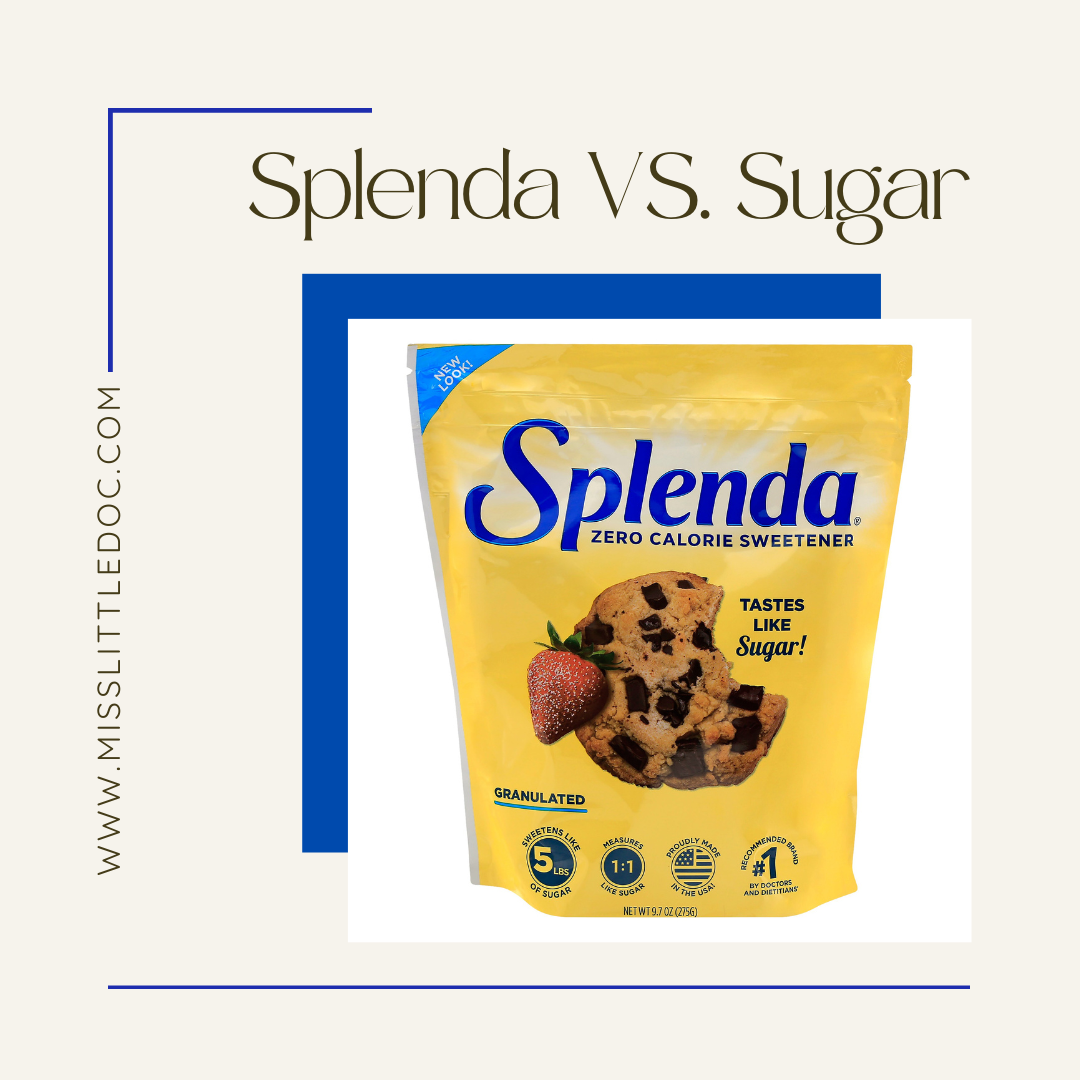Splenda vs. Sugar
In today’s fast-paced world, many of us seek quick and easy solutions to satisfy our sweet tooth. However, the excessive consumption of artificial sweeteners like Splenda and refined sugars can have detrimental effects on our overall health and well-being. It is crucial to understand the negative impact these substances can have on our bodies.
In a new study from January 2023 in Translational Psychiatry, titled Whole-brain tracking of cocaine and sugar rewards processing, it concludes that sugar is just as addictive as cocaine in reference to the areas of the brain responds to each substance. Also, in 2007 a study by PloS One, Intense sweetness surpasses cocaine reward, conclude rats presented with saccharin and intravenous cocaine almost exclusively chose the sweet taste over the addictive drug.

Splenda aka Sucralose
Splenda, also known as sucralose, is used as a chemical sweetener which gained popularity as a calorie-free alternative to sugar. It is now in baked goods, beverages, chewing gum, gelatins, and frozen dairy desserts and is 600 times sweeter than sugar. This chemically altered substance is not recongnized or metabolized by the body and has now been shown to break DNA apart.
Other knowns reactions to Sucralose are:
a) Digestive Disturbances: Splenda has been linked to digestive problems such as bloating, gas, and diarrhea. Its chemical structure can disrupt the balance of gut bacteria, affecting digestion and nutrient absorption. Which is known as leaky gut syndrome, which is a break down of the lining of the stomach.
b) Metabolic Dysfunction: Contrary to its marketing claims, studies have suggested that Splenda may contribute to weight gain, insulin resistance, and metabolic syndrome. This artificial sweetener can disrupt hormonal signaling, leading to imbalances in appetite regulation and metabolism.
c) Potential Neurological Effects: Some research indicates that Splenda may affect the nervous system, with reports of headaches, dizziness, and even seizures in certain individuals. While more studies are needed, these findings raise concerns over the long-term neurological impact of this artificial sweetener.
In Medscape this month it was stated, “It’s time to revisit the safety and regulatory status of sucralose because the evidence is mounting that it carries significant risks. If nothing else, I encourage people to avoid products containing sucralose,” said researcher Susan Schiffman, PhD, adjunct professor of biomedical engineering at North Carolina State University, in a statement. “It’s something you should not be eating.”
Sugar
Sugar is a staple in many processed foods and beverages, poses its own set of health risks. Excessive sugar consumption can harm our bodies in several ways:
a) Inflammation: Refined sugar is known to promote inflammation throughout the body. Chronic inflammation has been linked to various health conditions, including joint pain, cardiovascular disease, and even some cancers.
b) Weakening of the Immune System: Sugar can suppress the immune system, making us more susceptible to infections and illnesses. A weakened immune system also slows down the healing process, hindering the body’s ability to recover.
c) Joint and Musculoskeletal Issues: High sugar intake can contribute to increased systemic inflammation, which may worsen joint and musculoskeletal pain. This can be particularly relevant for individuals seeking chiropractic care, as inflammation can impede the healing process and progress of spinal adjustments.
Chiropractic
It is important to recognize the negative effects of artificial sweeteners and excessive sugar consumption on our bodies. Reducing or eliminating these sweeteners from our diet can promote optimal functioning and support the body’s natural healing abilities.
Chiropractic is whole body encompassing. If you would like to know how chiropractic can help you give us or a chiropractor near you a call! Spinal adjustments along with diet can change your life!
~Dr. Lacey~
Carder Chiropractic Clinic, INC.
El Reno, OK 73036



